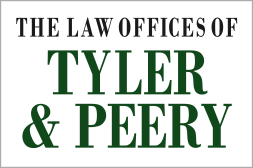Drug company Merck, maker of cholesterol medicines that rake in billions, faced accusations that it did not release “bad news,” as the Associated Press characterizes it, about its cholesterol drugs Zetia and Vytorin.
It turns out that the cheap cholesterol pills do the job just as well – but Merck was keeping this information close to the vest.
If this had gotten out, what could it have meant to Merck?
It meant a drop in sales of the much-pricier Zetia and Vytorin.
But it did get out (after Merck finally released the results of the study after two years), allowing Merck to enjoy good sales until then. And sales indeed dropped. Outraged investors sued Merck, which led to a recent $688 million settlement.
While this case is not an example of defective drugs, it’s still a great example showing that good sales are more important than the truth. And this mentality often bleeds over into cases involving defective drugs, too.
At Tyler & Peery, our law firm handles a wide variety of defective drug claims, including drugs like diabetes drug Actos (made by Takeda Pharmaceuticals in Japan) and the blood thinner Pradaxa (made by German firm Boehringer Ingelheim).
To learn more, please visit our San Antonio defective drugs page.
Source: Merck settles investor suits on cholesterol drugs
